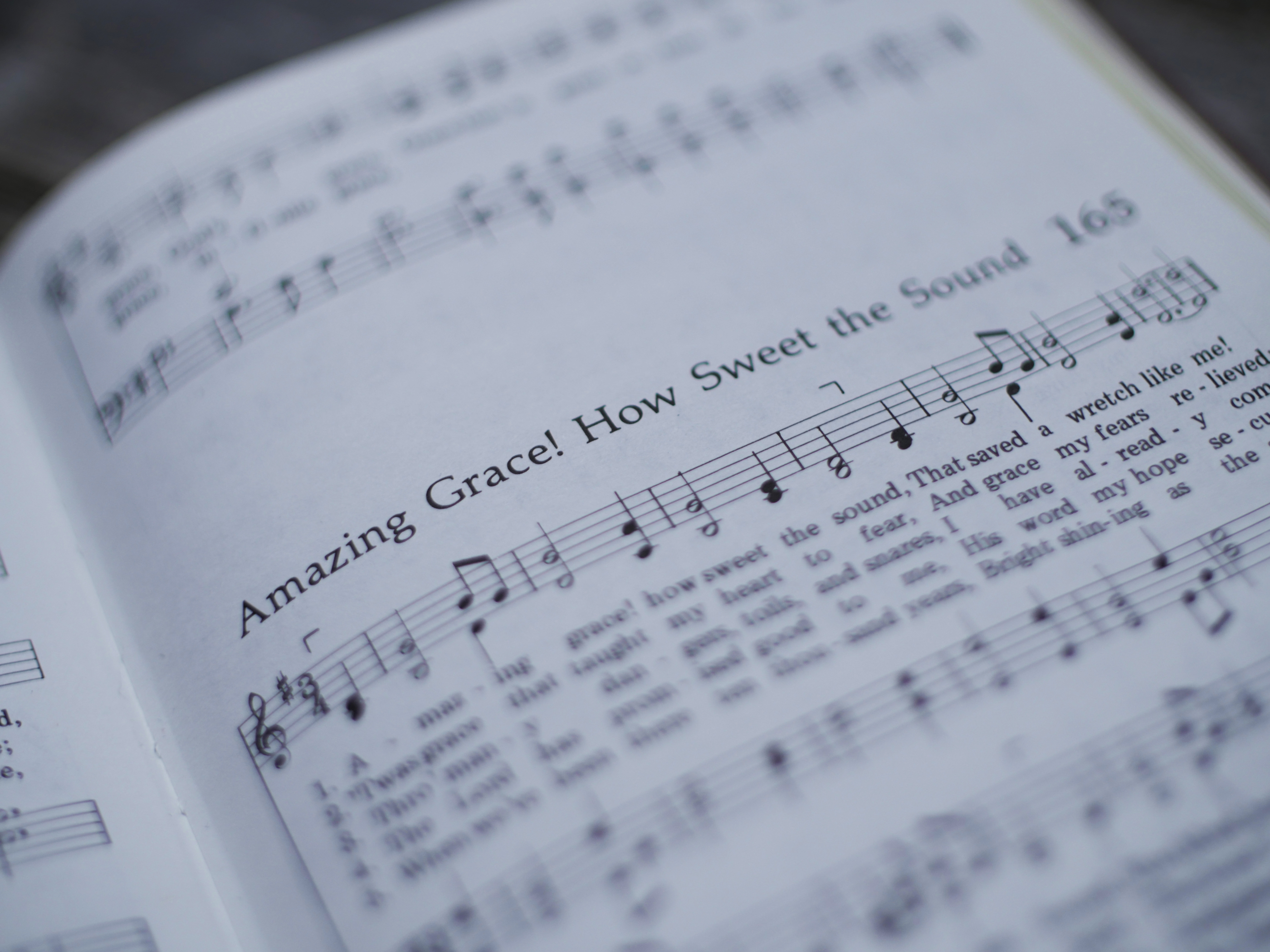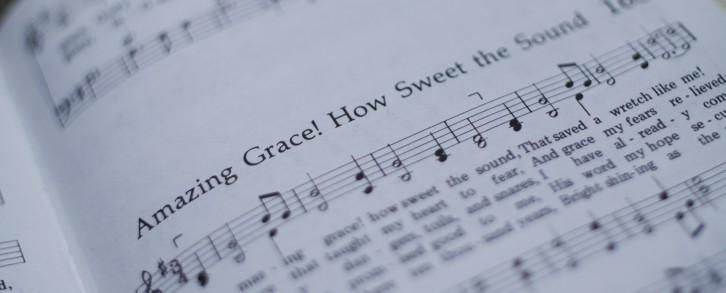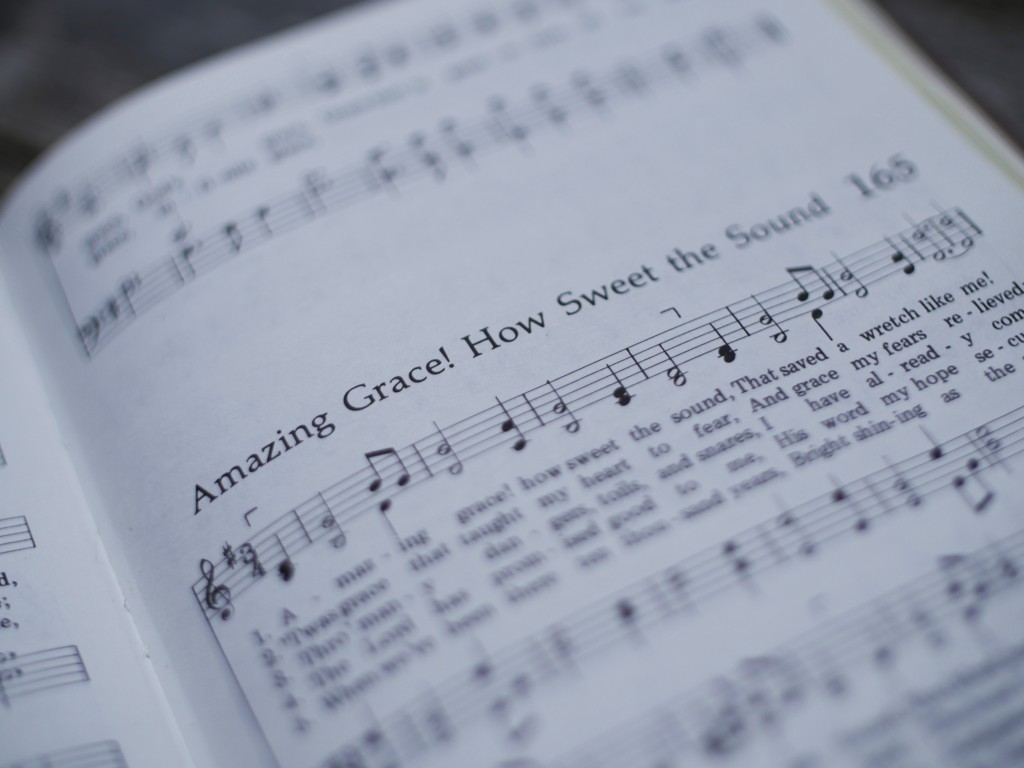A Song Can’t Say It All
By Greg Cooper:
US company ‘Epipheo’ produces 3-minute videos to explain complex concepts – things like Google Wave, accounting software, even cholesterol. Epipheo wants viewers to have ‘epiphanies’ (or thought breakthroughs) so they come to understand complex topics better. (Hence the name – epiphany and video combined)
As a songwriter, that’s exactly what I try to do when writing songs for churches. Struck by an idea in a sermon, a phrase in the Bible, or a thought shared in conversation, I’ll launch into writing a song. That one idea will usually be part of a much bigger biblical topic.
Here’s the problem: when singing a song in church, congregation members and ministry staff can sometimes want every song to ‘say it all’. (Full disclosure: I have been this congregation member and staff member!). We want a song to state the gospel in full or present a complete systematic theology on a given topic. A song failing to meet this criteria can be considered theologically unsound and then excluded from the song list.
Certainly we would want to acknowledge that omission of key theological truths can create untruth – such songs should, of course, be avoided. We proclaim a life-giving truth that our forefathers fought to protect – and we are called to do the same.
What’s more, congregational song writing is powerful – it puts words in congregations’ mouths, and asks them to own those words as they sing. It’s imperative, therefore, that song lyrics be both theologically sound and thematically precise.
So how might we approach the role and content of songs in Sunday services in a nuanced and helpful way?
Embrace the differences between sermons and songs
- A song (or poem) is a different genre to a sermon
We know this. Yet given the rightful prominence of sermons in our gatherings, we often evaluate songs as if they were sermons. Subconsciously, we might ask:
-‘Did the song fully unpack a topic?’
-‘Did it explain and qualify all the terminology it uses?’
-‘Did it contain all aspects of the gospel?’
A song might do all these things. But it doesn’t always need to. In Colossians 3:16 Paul instructs that the place of song is to help the gospel to dwell in us “richly”. Presenting biblical concepts clearly and simply is essential to that process. To enable our hearts and minds to grasp core truths “richly”, presenting less information really is more.
Attempting to say everything there is to say in a song risks exceeding a congregation’s capacity to digest that information – and they may remember nothing. As the saying goes, ‘in trying to say everything, you end up saying nothing.’
- Sermon is long form, song is short form
A sermon is usually 25 minutes long. At a standard rate of 100 words spoken per minute, that’s 2500 words. By contrast, a song is usually 4 minutes long, and around 200 words. So a sermon can cover a wider terrain in greater depth than a song. Compare a movie vs a TV series, or a journal article vs a blog post – form affects how the writer can say things.
Jon Favreau, a former speechwriter for President Obama, spoke in a recent interview of the great discipline required to write less words. Think of the Obama slogan “Yes we can”. Just 3 words. Yet in the context of Obama’s campaign, they were incredibly powerful. Likewise, in the context of our gatherings, songs containing a few carefully chosen words can be highly impactful.
And the impact of this short form medium of song lasts well beyond Sundays. Our goal as songwriters is not merely writing biblically sound lyrics that congregations can comfortably sing. We also want songs to be accessible and help congregations to remember biblical truths in order to live for Christ during the week.
Music’s power to help us remember truths is well felt amongst those in the pews, and is the subject of much research. As James K.A Smith writes in Desiring The Kingdom, “song seems to get implanted in us as a mode of bodily memory… A song gets absorbed into our imagination in a way that mere texts rarely do.”[1]
Embrace the common ground between sermons and songs
Despite these differences, sermons and church songs have at least one major thing in common: they both seek to impact the heart so that disciples of Christ grow in their love and knowledge of him.
In his recent book Preaching, Tim Keller argues:
“[T]he goal of the sermon cannot be merely to make the truth clear and understandable to the mind, but must also be able to make it gripping and real to the heart. Change happens not just by giving the mind new arguments but also by feeding the imagination new beauties.”[2]
Impacting the heart in this way is also one of a songwriter’s main aims. As The Wizard of Oz lyricist E.Y. Harbug famously said: “Words make you think a thought. Music makes you feel a feeling. A song makes you feel a thought.”
If Keller and Harbug are right, then our songs and sermons should both aim to help us “feel a thought”, impacting both heart and mind together. This means looking beyond the logic or theological accuracy of a song (although those are essential ingredients). We must also ask whether a song’s poetry, imagery, and conceptual flow work together to present Christ as the ultimate beauty, such that – by the Spirit – our imaginations may be captivated, and our lives shaped.
Embrace the uniqueness of song
A song can use language uniquely. Traditionally, the songwriter’s primary linguistic tool is poetry. Yet a church songwriter also needs to convey the logic and persuasive nature of biblical texts. It’s a very difficult balance to strike!
Nonetheless, in church songs we should expect a degree of poetic ambiguity. What do I mean? Well, ambiguity in logic is unhelpful – a song’s overall message should be clear, consistent, and biblically sound. But as we see in the Psalms and Song of Songs, songs are poems. And there is an ambiguity inherent within poetry that should be embraced. Word pictures, imagery, and metaphors operate by inviting the reader or listener to construct a picture in their mind, and own the idea behind that picture.
While each reader/listener will have their own interpretation, well-written church songs can surround such imagery with unambiguous lines so that the meaning of the song is unmistakable.
Consider the opening lines of ‘In Christ Alone’ (Stuart Townend/Keith Getty)
In Christ alone my hope is found,
He is my light, my strength, my song;
This Cornerstone, this solid Ground.
Firm through the fiercest drought and storm.
… Here in the love of Christ I stand.
The biblical images of ‘light’, ‘song’, ‘drought’, and ‘storm’ can all take on individual meanings for the church member (based on their circumstances) – yet they all also unambiguously point to Christ because of the first and last line in the verses. These poetic moments of ambiguity are a beautifully artistic and effective means of communication within the genre of song.
There is something else a song can do uniquely: it can focus on one aspect of the gospel in great depth, from different viewpoints. Think of all the popular songs about love. This one topic is approached from countless angles. There’s new love. Old love. Happy love. Painful love. Long distance love. And so on.
In our context, a song that interrogates a single idea in this way can strengthen and deepen a congregation’s knowledge and love of God.
To illustrate, take John Newton’s famous hymn Amazing Grace. The same topic – ‘God’s grace’ – is described from uniquely different perspectives.
Firstly, through the lens of Newton’s salvation story (verse 1):
Amazing Grace, how sweet the sound,
That saved a wretch like me,
I once was lost but now am found,
Was blind, but now, I see
Our eyes are then drawn to God’s grace displayed in Christ (verse 4):
The Lord has promised good to me,
His Word my hope secures;
He will my Shield and Portion be,
As long as life endures.
Finally, Newton focuses on God’s grace displayed in eternity (verse 7):
When we’ve been there ten thousand years,
Bright shining as the sun,
We’ve no less days to sing God’s praise
Than when we’d first begun.
It’s curious to consider whether this type of hymn would be welcomed in the same way if written today. Note the ‘I’/ ‘Me’-centric flavour of the lyric which has sometimes been a point of contention in evaluating contemporary songs, at times preventing fair examination of the substance of songs.
On balance, it’s clear that Amazing Grace is more about God than Newton – and intuitively, we know this. It is Newton considering himself redefined because of God’s grace. That’s one reason the lyric works so well – it is essentially a testimony.
So even if, on its surface, a song lyric appears questionable, it’s worthwhile to pause and consider the one idea it may be meditating upon. Perhaps that idea may serve the liturgical flow of a gathering (eg. a call to worship, confession, an assurance of forgiveness), or help prepare us to hear God’s Word, or reinforce the sermon.
Trust that songs work together
It’s rare for church songs to be sung in isolation. Usually, there are at least 3 (if not 4 or 5) songs in a gathering. When these songs are well selected, the gospel comes through beautifully across the span of those songs. They tell the gospel story together.
In the selection of music, while a music leader (music director/co-ordinator) may have the delegated authority of selecting songs, it is ultimately a pastor’s responsibility to ensure that the gospel message is presented clearly in the gathering. A pastor should guide the song selection process, ensuring the songs traverse the gospel in appropriate depth. If a certain song feels misplaced in a gathering, it may not be a fault in the song. There may have been insufficient planning in shaping the gathering.
For example, it is not necessarily helpful to have 5 praise songs in one gathering – nor 5 songs focusing on sin. Ideally we want a range of songs that cover the various aspects of the larger themes of creation, sin, the Cross, redemption, and new creation. Indeed we must not worry that a song may not address all aspects of these topics. For a song is only one piece of a church’s diet of biblical teaching. But we must plan responsibly to integrate songs and other segments well.
In this way, song selection is always a tricky thing to get right. It requires prayer, advanced planning, open discussion between pastor and music leader, and usually a few revisions before Sunday.
In my experience of selecting songs for Sunday services, our best planning efforts are always surpassed by God’s kindness in the strong connections that emerge between songs, prayers, and sermon in the gathering itself. We could never have planned such precise connections. By God’s grace, we can do our best to proclaim the gospel across all songs and all elements of the gathering, and ultimately trust in the Spirit – and not the perfect song, or the perfect gathering – to secure and grow an individual’s faith, and the church as a whole.
Music is a unique gift from God. Let us joyfully embrace its uniqueness. May we seek to proclaim the gospel across all elements of our gatherings, and sequence songs thoughtfully to illuminate the gospel story and help God’s people meditate richly on his saving Word.
[1] J. Smith, Desiring The Kingdom (Volume 1) (Grand Rapids: Baker Academic, 2009), 171.
[2] T. Keller, Preaching (New York: Penguin, 2015), 160.
- Greg Cooper currently works part time with Effective Ministry, researching the place and importance of music in disciple-making. He is also Creative Director of EMU Music.









